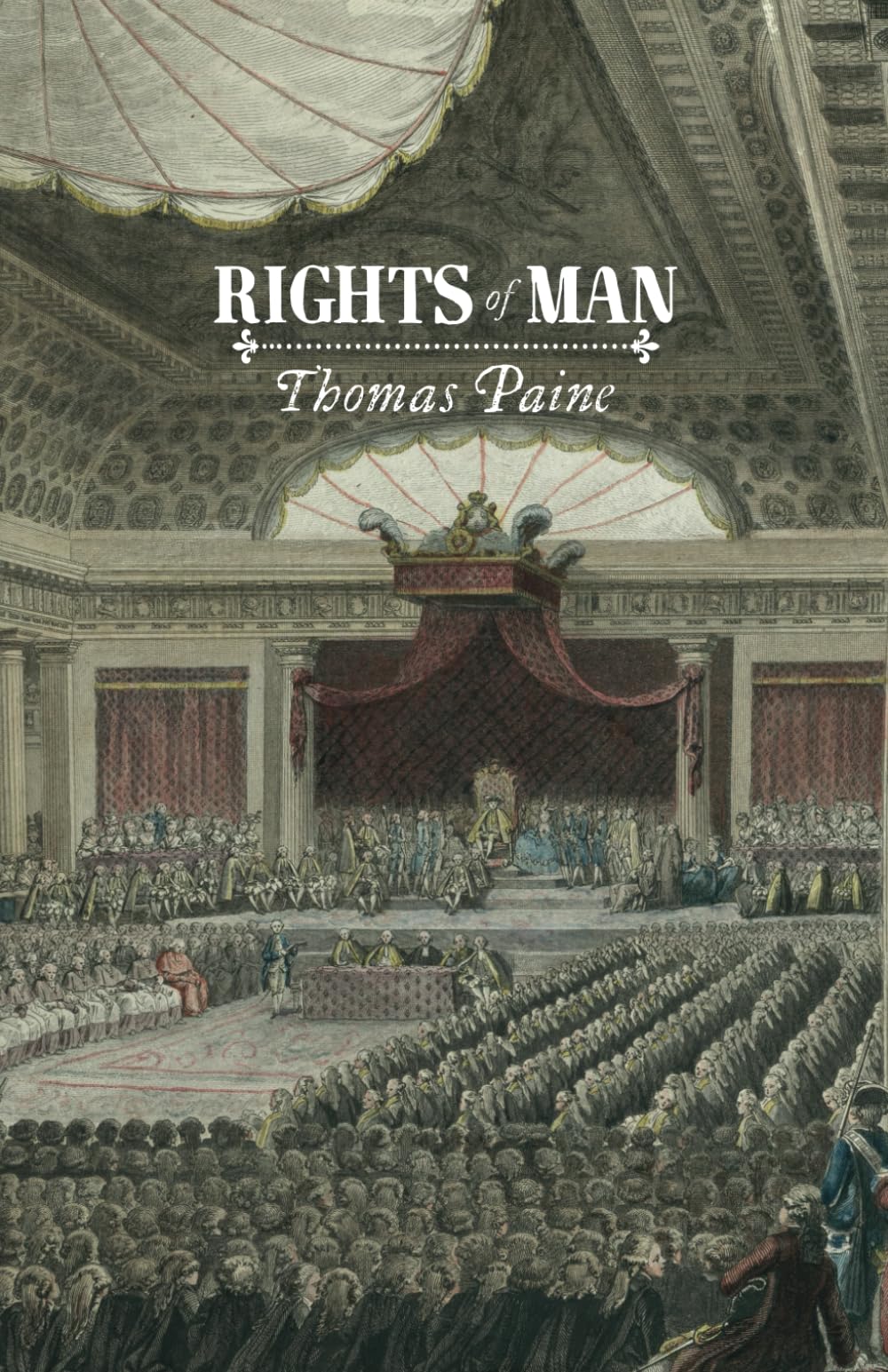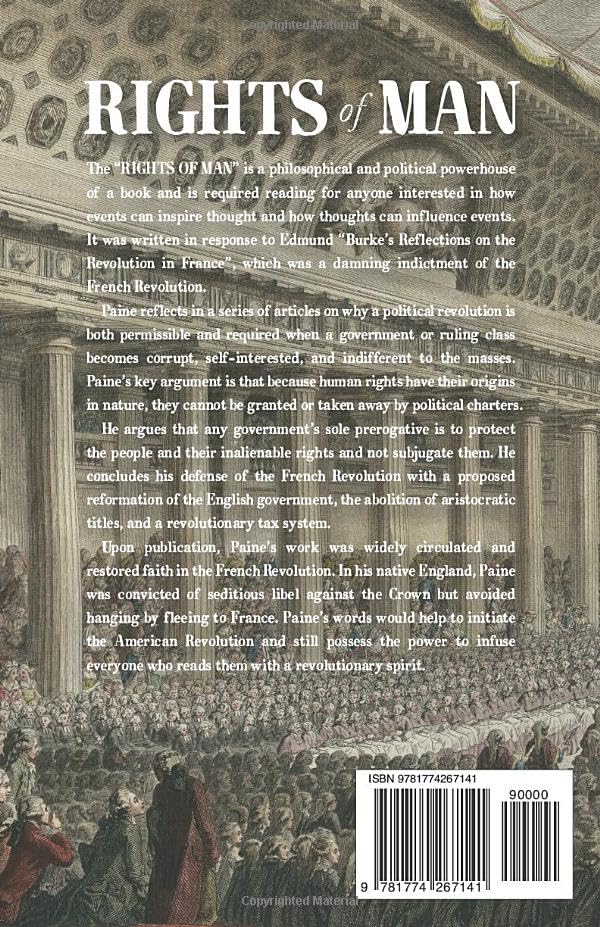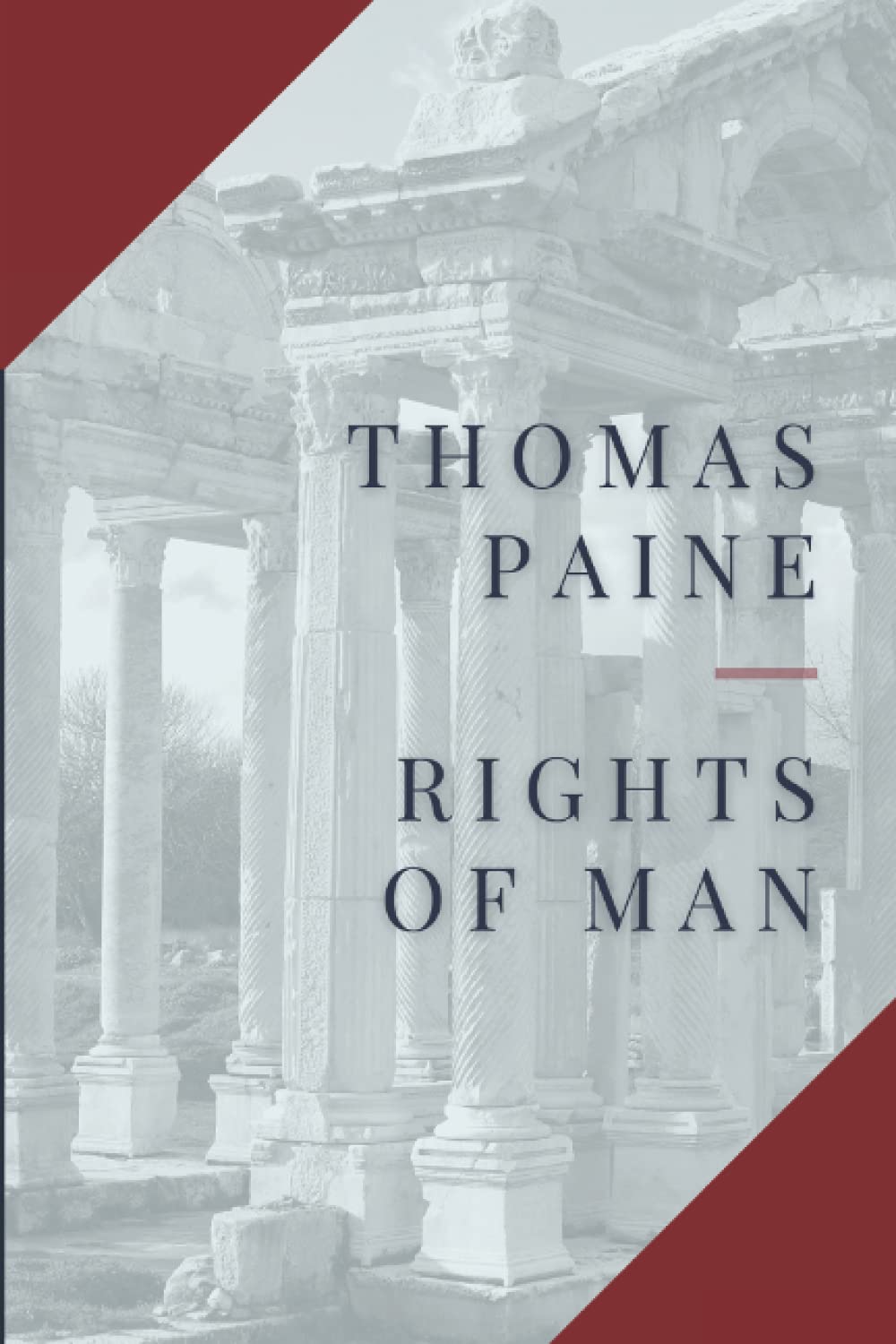The Rights of Man is a philosophical and political powerhouse of a book and is required reading for anyone interested in how events can inspire thought and how thoughts can influence events. It was written in response to Edmund Burke’s Reflections on the Revolution in France, which was a damning indictment of the French Revolution. Paine reflects in a series of articles on why a political revolution is both permissible and required when a government or ruling class becomes corrupt, self-interested, and indifferent to the masses. Paine’s key argument is that because human rights have their origins in nature, they cannot be granted or taken away by political charters. He argues that any government’s sole prerogative is to protect the people and their inalienable rights and not subjugate them. He concludes his defense of the French Revolution with a proposed reformation of the English government, the abolition of aristocratic titles, and a revolutionary tax system. Upon publication, Paine’s work was widely circulated and restored faith in the French Revolution. In his native England, Paine was convicted of seditious libel against the Crown but avoided hanging by fleeing to France. Paine’s words would help to initiate the American Revolution and still possess the power to infuse everyone who reads them with a revolutionary spirit.
Rights of Man
$11.99
This book is a foundational text in political philosophy that supports studies in history, government, and civics.
Rights of Man
$9.99
This book serves as a primary source text for studying history, political philosophy, and the development of democratic thought.
Rights of Man, written by Thomas Paine, is a seminal work of political philosophy that has been highly influential in the development of modern democracy. Published in 1791, the book argues that all individuals are born with certain natural rights and that governments are created to protect and promote these rights. Paine believed in the “natural rights” of man, and he wrote Rights of Man to defend the French Revolution and challenge the legitimacy of the British government. He argued for the right of the people to overthrow a government that does not protect their rights, and for the right of the people to form a new government based on their own principles. Paine’s ideas were highly controversial and were met with strong opposition from the British government. Despite this, the book was highly successful and was translated into several languages, including German and Spanish. Rights of Man is seen as a key text in the history of democratic thought and has been cited as an inspiration for many political thinkers and activists, including Abraham Lincoln and Mahatma Gandhi. Thomas Paine (1737-1809) was an English-born revolutionary philosopher, political theorist, and author who is best remembered for his highly influential writings, such as Common Sense and The Rights of Man. Born in Thetford, England, Paine was apprenticed to his father, a stay-maker, before relocating to London where he found work as a corset-maker. After immigrating to Colonial America in 1774, Paine quickly became involved in revolutionary politics. He wrote Common Sense in 1776, a highly influential pamphlet that made a powerful case for American independence from Great Britain. His other works, such as The Rights of Man, cemented his reputation as one of the most important revolutionary thinkers of the period. In addition to his political writing, Paine also wrote on a variety of other topics, including religion, science, and economics. He was an advocate for the abolition of slavery and a proponent of social reform. He ardently defended the principles of democracy, arguing in favor of a strong and representative government. He was also an ardent critic of government, and his writings were often critical of the ruling classes of the day. In addition to his revolutionary writings, Paine also made important contributions to the development of the sciences. He wrote extensively on geology, chemistry, and physics. His works on these topics helped to further the development of the scientific revolution of the 18th century. Paine’s influence extended far beyond the American Revolution, and his works were widely read in Europe and beyond. His writings were highly influential in the French Revolution and in the development of many of the constitutional principles adopted by the United States. Throughout his life, Thomas Paine was a passionate advocate for freedom, democracy, and social justice. His writings helped to shape the political landscape of the late 18th and early 19th centuries and remain an important source of inspiration for modern-day activists.
Additional information
| Dimensions | 15.2 × 0.9 × 22.9 in |
|---|
Reviews
There are no reviews yet.













Reviews
There are no reviews yet.